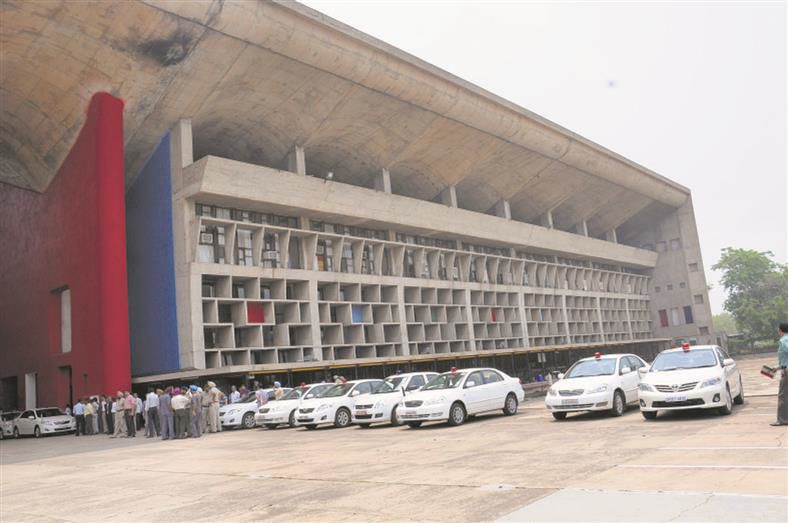Punjab and Haryana High Court mandates digital verification for document registration, bail sureties
Saurabh Malik
Chandigarh, July 21
In a bid to combat fraudulent activities in document registration and bail procedures, the Punjab and Haryana High Court has mandated the use of mAadhaar for verifying witnesses and executants. Justice Anoop Chitkara’s ruling aims at enhancing the authenticity of legal transactions involving power of attorneys, sale deeds and other documents.
Will shut biz of illegal service charge
The court directions are likely to shut down the business of illicit service charges, while mandating the use of the mAadhaar application for surety verification. Justice Anoop Chitkara
Justice Chitkara also called for the use of mAadhaar in bail matters to verify sureties to plug in the “loophole” associated with the “illegal” and “immoral” demand for money by individuals identifying the authenticity of sureties.
To avoid incarceration of accused following inability to furnish sureties, Justice Chitkara further ruled it was permissible for the officer or court concerned to reduce the bond amount or exempt the surety bond altogether, if the accused — to their satisfaction — demonstrated inability to provide the same.
The High Court registry was also directed to forward the order to the Chief Secretaries of Punjab, Haryana, and the UT Administrator, to “consider this aspect”. The order was also directed to be sent to all Session Judges of Punjab, Haryana and Chandigarh.
The directions came as Justice Chitkara observed that the court had granted bail to an accused, while directing him to furnish surety in accordance with the provisions of the Bharatiya Nagarik Suraksha Sanhita. But the ground reality was that the investigators or the attesting officers insisted on verification of sureties from – among others – the lambardar and ward members, after they appeared before the courts.
Justice Chitkara asserted: “It is common knowledge that many people, who identify the authenticity of the sureties, take money to cover travelling expenses, loss of day’s earnings or charges for providing service, which is not only illegal and impermissible but also unethical and immoral and this loophole must be plugged in.”
Justice Chitkara added the court directions were likely to shut down the business of illicit service charges, while mandating the use of the mAadhaar application for surety verification. The Bench emphasised that identifying sureties through the Aadhaar card and verifying the genuineness of the number through mAadhaar, available on Google Play Store or Apple App Store, was more authentic and almost foolproof.
Consequently, there would be no need or justification for verification of sureties through “lambardar, nambardar, sarpanch, pradhan, panch, kshetra panchayat sadasya, gram sewak, BDC members, MC ward members, etc”.
It would be sufficient for the officer or the court attesting the bonds to “declare the verification and authentication of the surety’s identity through Aadhaar, either themselves, through staff or even by delegation”. They would not insist on identification of sureties through “lambardars, ward members, etc.” Such identification would be carried out through only when Aadhaar identification was unavailable,” Justice Chitkara concluded.









